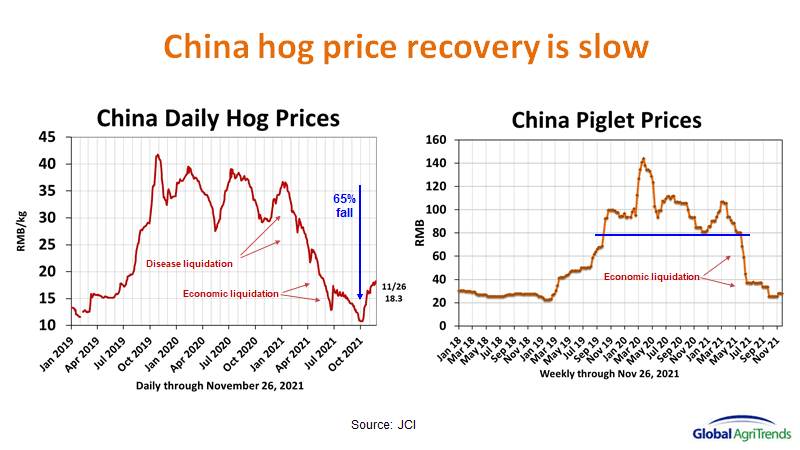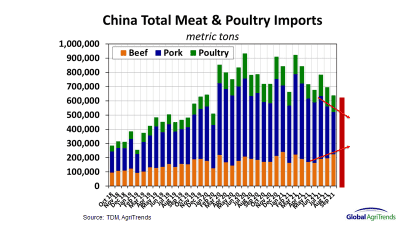THE spread of African Swine Fever (ASF) has decimated pork production across the world in recent years and has been credited for contributing to the surge in demand for Australian beef.

No, they are not hotels – these multi-storey piggeries are an example of how China is radically re-formatting its pork industry
China has been one of the worst affected by ASF, with its pig producers liquidating herds and beef imports increasing dramatically in the past two years. Europe, South America and other parts of Asia have also seen bad outbreaks.
With herd recovery still hanging in the balance for China and other countries, many will be watching how it unfolds next year. Last month, Rabobank said ASF was going to be the biggest market driver for 2022.
“While ASF outbreaks continued in China and Vietnam during 2021, both countries are recovering,” the report said.
“Herds are being rebuilt in large farms, and pork production increased strongly in 2021, squeezing out poultry. This trend is expected to continue in 2022.
“However, ASF is still active, so herd rebuilding is susceptible to any virus mutations or loosening of biosecurity measures.”
China’s herd rebuild from ASF has reportedly been based on the construction of medium-to-large piggeries, with a lot of smaller operators permanently exiting the industry.
Independent meat analyst Simon Quilty said the rebuild in China was facing major economic challenges, demonstrated by the collapse of real estate giant Evergrande.
“Hog prices continue to be below breakeven, so whether you’re a small, medium or large operation there will be economic losses if you start rebuilding herds,” Mr Quilty said.
“The ability to get finance has become a lot more difficult in recent times, Evergrande has been a good example of that – those problems are undermining market confidence.”
Rush to the door
Despite African Swine Fever taking hold several-years-ago, Mr Quilty said the virus had caused many Chinese pig producers to sell their herds in 2021.
“New variants came about because of black-market vaccinations that were put into the general hog population in a desperate attempt to control ASF,” he said.
“Those variants were a mild version of the virus, but they were harder to detect and as a result the country saw many more pig losses.”
Mr Quilty said with the harder-to-detect variants spreading through China, a lot of producers rushed to sell their herds before their animals contracted ASF.
“We call this trend the rush to the door, where producers rush to sell animals regardless of whether they were finished,” he said.
“With all that pork coming on the market, prices dropped very quickly to a point where producers could not breakeven. When it dropped below breakeven it became an economic liquidation where small operators, who once made up 50pc of China’s pig herd, exited the industry.
“That’s paved the way for medium-to-large operators to establish themselves.”
Beef demand could remain strong regardless of ASF
As China has looked to make up for the loss in pork in recent years, a new market has emerged for the beef industry.
Mr Quilty said beef was growing in popularity with Chinese consumers and was likely to remain a part of their diets after ASF is sorted out.
“Even with the flood of Chinese pork coming on the market and prices plummeting, beef imports have been increasing and prices have been rising,” he said.
“Our expectation is that demand for beef will continue.”
Despite the increase in beef imports to China, Australian exports to the country have been decreasing.
“Australia’s role has diminished, due to the herd rebuild and the licenses that were suspended by China last year,” Mr Quilty said.
Both Rabobank and Mr Quilty are predicting the global cattle herd to contract next year. But Mr Quilty said with demand for beef in China on the opposite trajectory, there was an opportunity for the Australian beef industry.
“Beef is almost existing in its own market now and it is independent of other meats like pork and poultry,” he said.
“The Chinese consumer has fallen in love with beef, the introduction was made by ASF but it now has a market of its own.”





HAVE YOUR SAY